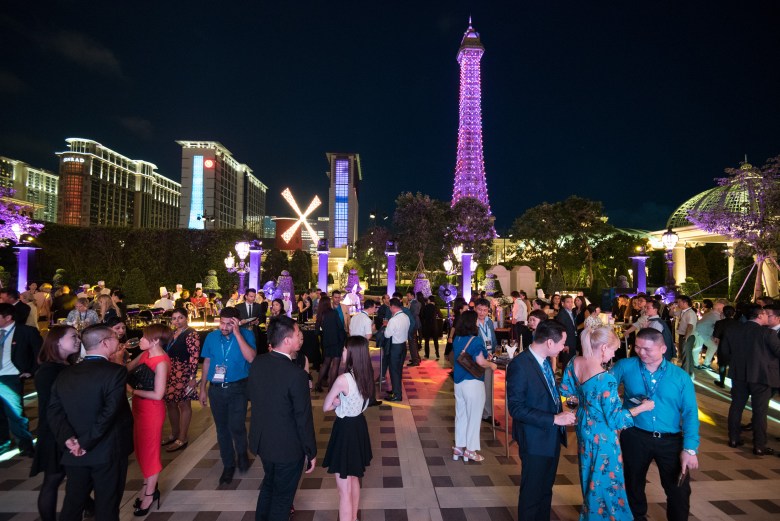In a Covid-driven transformation, Macau’s gaming companies are seeking to diversify into non-gaming segments and focus more on betting tables that serve ordinary tourists rather than mainland China VIPs.
Macau lawmakers recently said it is unlikely that Chinese high-rollers would return to Macau in pre-pandemic numbers any time soon as Beijing ramps up controls forbidding wealthy individuals from gambling overseas.
China has also restricted its nationals from vacationing overseas amid the pandemic, which first started in Wuhan and spread around the world. Macau has been mostly Covid-free, though on August 4 the government ordered Covid-19 tests for all 680,000 Macau residents after a family of four tested positive. No new cases have been reported since.
Over the past decade, the central government has urged Macau to diversify its economy from gaming into more cultural and exhibition sectors. But progress has been slow as 70-80% of the government’s tax income came from casinos before the pandemic.
Last year, this fell to 65% as gaming revenue dropped by 64.9% to 46 billion patacas (US$5.74 billion) from 131 billion patacas in 2019, due largely to the epidemic.
Last September, Macau and the mainland resumed quarantine-free travel across their borders where travelers could be exempted from quarantine if they had a negative Covid test within 48 hours.
From July 10, however, cross-border travelers are now required to provide negative test results done within seven days. The requirement was tightened to within 12 hours last week after the four local infections were found. On Tuesday, it was rolled back to within 48 hours.
In the first seven months of this year, gaming revenue in Macau rebounded by 63.9% to 57.47 billion patacas from 35.07 billion patacas for the same period of last year. But the figure was still 67% down from 2019 levels.
Moreover, revenue from VIP rooms dropped 6.85% to 8.5 billion patacas in the second quarter of this year from the first quarter, representing only 33.5% of the total gaming revenue in the city. In the past, revenue from VIP rooms contributed more than 70% of all gaming revenue.

There are other regulatory risks rising. In a report released on August 2, an urban construction committee at Macau’s Legislative Council for the first time mentioned “national security” considerations for the renewal of gaming licenses in June 2022.
“The development of Macau’s gaming businesses involves national securities matters, especially in public safety, economic and financial aspects,” lawmakers on the committee said. “The government must ensure that the gaming sector would develop steadily and healthily and at the same time fulfill the national security needs.”
The committee said the Amendment (XI) to the Criminal Law of the People’s Republic of China, which came into effect on March 1, showed that Beijing has increased its efforts to suppress capital outflows and curb online gaming.
It said the amendment was a big warning to the gaming sector in Southeast Asia, as well as other gambling hubs worldwide.
The committee urged the government to look into how the amendment would affect Macau’s gaming sector, especially the VIP segment, and whether gaming license holders should diversify their businesses to non-gaming sectors and take more social responsibility.

According to the amended Article 303 of China’s Criminal Law, a person will be sentenced to up to 10 years of fixed-term imprisonment, criminal detention or control, in addition to a fine if he is convicted of “organizing mainland Chinese to gamble overseas.”
In July 2019, China’s Economic Information Daily in an article criticized Suncity Group chairman Alvin Chau for organizing mainlanders to gamble in casinos in the Philippines and Cambodia via an online platform.
The article said such businesses caused a huge capital outflow in China and endangered the country’s social and economic orders and financial security. Chau at that time denied the accusations. In June 2021, Hong Kong media said Chau might diversify his businesses to e-commerce later this year as the VIP punter segment was contracting.
Last November, Angela Leong On-kei, the fourth wife of the late casino tycoon Stanley Ho and co-chairman of SJM Holdings, said the company’s casinos might mix their VIP tables with the ordinary tables as “all customers should be treated as VIPs.”
On August 3, SJM Holdings said its net gaming revenue rose 18.8% to HK$5.08 billion in the six months ended June 30 from HK$4.27 billion in the same period of last year. However, it still recorded a loss of HK$1.47 billion due to some one-off expenses in the first half of this year, compared with a loss of HK$1.41 billion in the first six months of 2020.
A research report published by UBS on August 5 said that four recently identified Covid cases in Macau would probably have a short-term impact on the city’s gaming revenue. It said if many more cases were identified, the negative impact would increase and continue until the fourth quarter of this year.
The UBS report also said it was optimistic about the recovery pace of the city’s gaming sector.


